For years I saved his ashes.
It’s been nearly a decade.
For years I saved hers too.
His mother.
It’s June 5, 2025 and Sergiusz, my late-husband, would be celebrating his 37th birthday had he lived past the age of 28. His death has narrated much of my life for nearly a decade now. It’s shaped my friendships and sparked new ones. And upon reflection, I can recognize that my healing process has also broken friendships apart. It’s changed the way I’ve dated, where I’ve moved to, and what jobs I’ve been qualified to do. Sergiusz’s death was an earthquake in my mid-twenties and I could argue that every choice I’ve made since then has been, in some effect, an aftershock.
In the early years after he died, everything felt symbolic. I would count with ferocity how long it had been and what milestone we were passing without him. Each year felt seismically different than the one before. The second year was certainly harder than the first. The fourth was just as challenging as the third, but with more guilt attached. But now I’m so far along in my widowhood that I have to pause to count how long it’s been, how old I am and how old he would be.
This September, the same month I will welcome a baby into my life for the first time, I will honor the ninth anniversary of his death. Time has been a tool and no longer does it feel like a betrayal of his memory to dance, appreciate what I have, and prioritize ease and joy. In a wonderful change of pace, those are the aspects of life that feel the most healing.
I am now living in a chapter where most of my friends never knew Sergiusz (which is pronounced Sergio for us English speakers). They don’t know how good of a cook he was, or about his passion for baking bread, or that he emigrated from Poland to be with me in America. They don’t know that he would get cranky if he couldn’t smoke cigarettes and drink coffee in the morning. They don’t know that he spoke six languages (was it that many? I can’t even remember anymore) or that when he was a kid, his local newspaper dubbed him a “modern day Indiana Jones” because he was teaching himself hieroglyphics.
But perhaps what feels more stark is that most of my community never knew me as the young widow. They’ve met me as someone much more whole. They know me as a woman who has published a book and lives with her dog and loving husband (who is also a fantastic baker). They know that I was widowed, at least some of them. It’s a story though, nearly fiction.
Perhaps that’s why I kept his ashes over all of these years? Maybe.
When Sergiusz was cremated, I thought I would spread him over and over again. I wanted to take him with me everywhere, always. I wanted him to flow through the rivers of my life.
I first spread him in Denmark, in the place and on the one-year anniversary of the day we had our wedding celebration. That was August 27, 2017. I was alone. I filmed myself. I drank wine and journaled and listened to our music. I was just shy of being a widow for a year at that point. The next time I spread his ashes was in Maine at the place where we were legally married. His parents came from Poland and close friends traveled from various corners of the world. We were all together as we celebrated his life and I felt well-loved.
My world at that time was surrounded by his memory. I would move back and forth between living in my parents’ basement and traversing Europe. I carried few belongings then, but everything I had was sentimental.
It was a slow process to dismantle the memories. Sometimes it happened accidentally and sometimes it happened with a ferocious hunger for newness. I would feel urgent to create distance from the person I was forced to become in the aftermath of his death.
With the ashes though, I found myself waiting for any moment of remembrance that felt as clear as the loss felt in the years before. I saved his body, wanting to share him with the many places I would come to love, but not anticipating that I would want to love them on my own. I always thought I would spread him where I bought my first home, but when that time came, no part of me wanted to have him at the edge of the urban condo I reside in. It didn’t feel right and felt more like a punishment than a comfort.
So the ashes sat. First in one closet, then a next. I shuffled them from space to space where they were out of sight, but never out of mind. And then I added his mother to those spaces. Mother and son, together living their afterlife in my closet. Sometimes I would crack jokes about it, lightening the burden of their physical presence with humor while trying to make meaning out of my confusion. Luckily I married a man who, even if he didn’t understand, accepted that this was part of the literal baggage I brought into our relationship.
In recent years, I’ve resisted returning to the memories of death and that has been its own healing process in itself. Sometimes I have approached this in a healthy way and sometimes it’s been through emotionally-erratic decision making. On most days though, I understand this process as the tension of growth and of growing up.
This feeling of resisting has also taken root in my professional life. In the past months, I’ve agonized over the question of whether to return to Europe to revisit places of the past. In this circumstance, the death is not widowhood, but the memories and the study of World War and the Holocaust—topics I’ve been surrounded by for the whole of my adult life. But as of late, the hard shell that has always allowed for my immersive studies has felt softer than I’m used to. Perhaps it’s the politics of the day and the heaviness of the headlines that has lowered my capacity to learn about human suffering. Or maybe it’s the baby in my womb and already feeling the motherly instinct to protect the child from what I’ve had to endure. As my mother once said to me about our inherited family history, “I don’t want you to feel the way I feel.”
And the reality is that not only do I feel that for my unborn child, but I feel it for myself. I don’t want to shackle myself to reliving over and over again what I’ve worked so hard to heal. Memory has as much of an ability to latch us to the past as it does to propel us to the future. I love memory. I love remembering. I love documenting and reflecting. It’s a joy and my meaning-making. It’s my hobby and my purpose. But I have also learned that it’s easy to become entangled and estranged from ourselves when we constantly feel the need to memorialize. There comes a time when the obsession with memory creates harm. And that’s what these ashes had become for me—the ones in my closet and the ones of my ancestors.
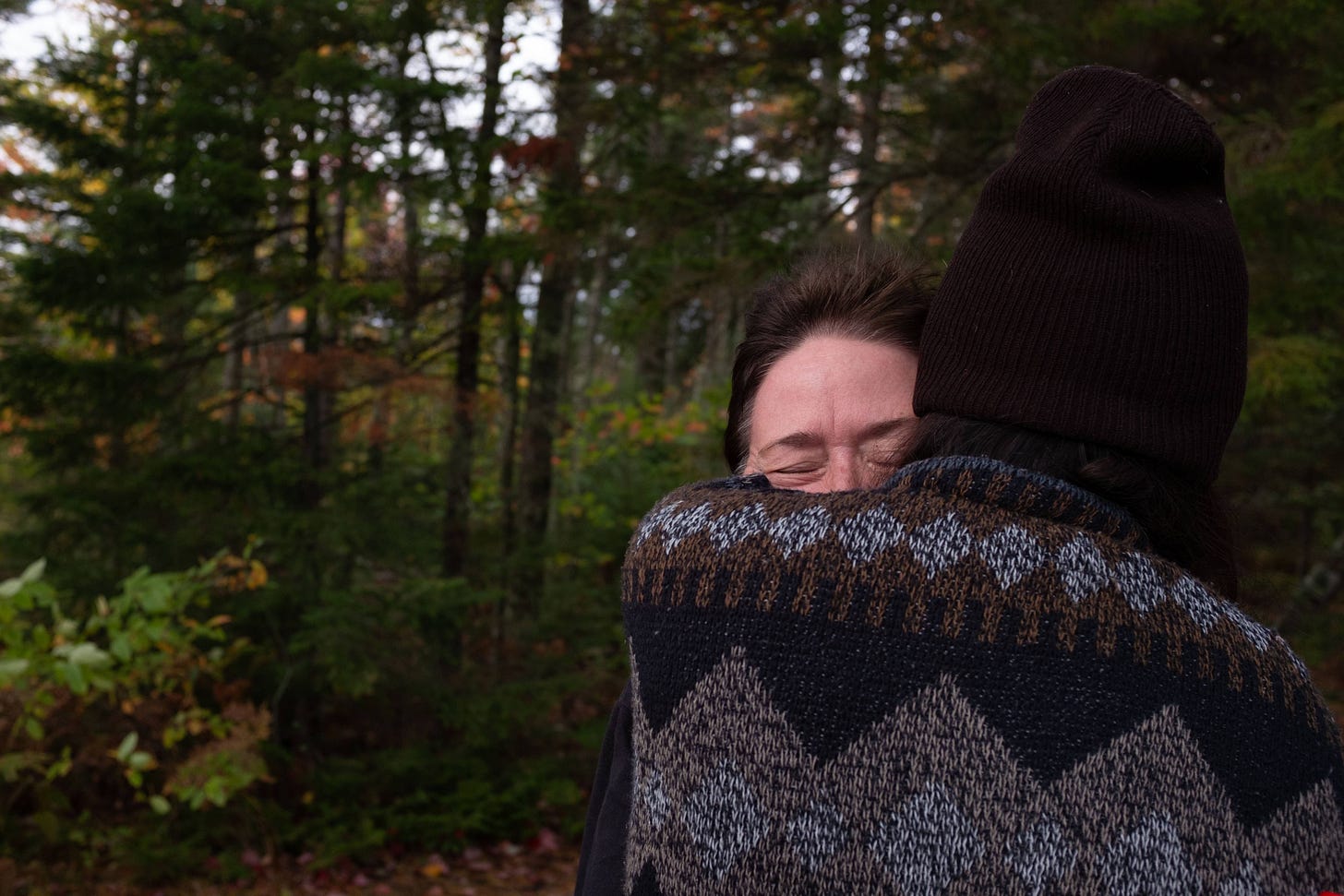
A few weeks ago, on an insignificant day in May, I decided it was time to release myself from the burden of caring for cremated bodies. It was a spontaneous decision. I didn’t tell anyone who knew Sergiusz, or anyone who knew me back then. My husband, T.J., only knew because he was with me the morning I decided to spread the ashes. I offered no conversation or reflection, nor an expectation of him to join. But he of course wanted to come.
So on a misty morning we took Sergiusz’s mother, Danuta, to the chosen spot, stopping for coffee and pastries along the way. Overlooking the natural world basking in the cloudy sky, I let her free. Enough rain dampened us that I could call it symbolism. It was her presence.
And the next morning, I took Sergiusz to where I had spread him all those years before with our parents and friends. I also took a bundle of lavender I had been gifted at his shiva. That too had stayed in my home for nearly a decade; the lavender was wrapped in purple ribbon which no longer matched the color of the petals. I walked down the dirt path with the box of ashes. It was the same dirt path we walked down as newlyweds nearly ten years before.
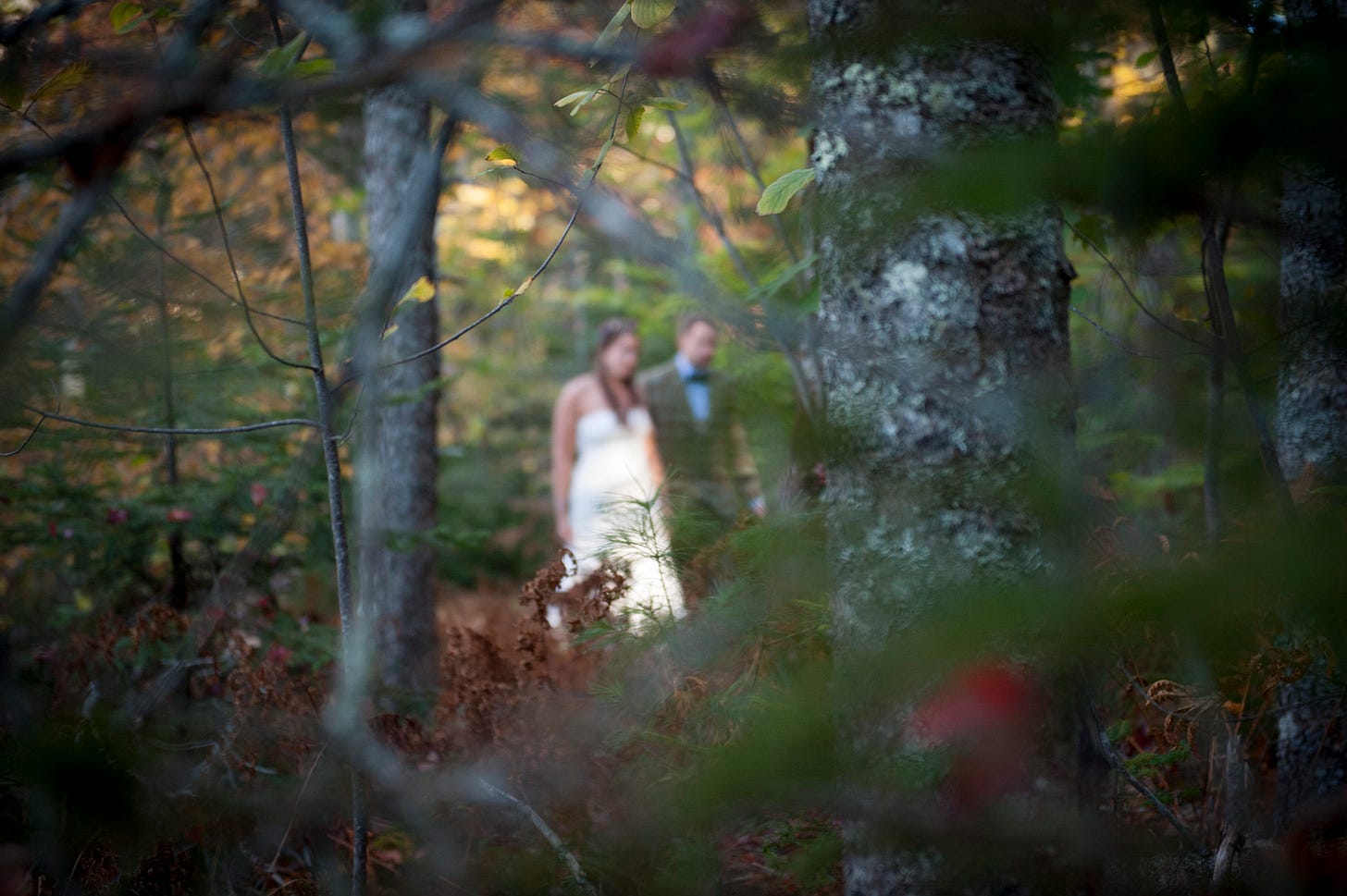
The box was heavy which is how I remembered it being when I picked it up at the crematorium in 2016. Seeing how much of him was left was proof that I had savored spreading him, as if only sprinkling his ashes would keep him with me for longer.
On this day, I let them all go. Never had I spread so much at one time. The visual of plenty was mesmerizing and the experience mystifying. I was witnessed spreading my husband by my husband, which was a strangely comforting reality to have found myself in. There was no poetry nor prayer. I didn’t need it or want it. I simply noticed my gratitude for a good-life-once-led mixing with a life-now-well-lived; they felt as one, which they always have been and always will be.
I felt relieved and relaxed, and wondered if all my clinging to Sergiusz’s memory had been hard for him. I wondered if he knew that I was finally letting his ghost be free, just before what would be his 37th birthday.
I quietly wrote for a few minutes, appreciating the company I kept. Overlooking his ashes, this is what came:
"In September 2016, upon his death, one life of mine stopped and another was set in motion. My sadness became despair which over the years turned to empowerment and now ease: at least on most days that’s how it feels. I sit here now on a Friday morning in mid-may 2025 with a child growing inside of me. My dog is nearby. She never knew Sergiusz. My husband is nearby. Neither did he. The birds are singing and the fog is dancing and the bright green of the spring trees look like a painting. The water is gentle and makes me feel calm. It’s the season of change for my memories, and perhaps Sergiusz’s too.”
If you would like to read more about my mother-in-law, Danuta, you can find an essay I wrote last summer around the two-year anniversary of her passing. She was a force of nature in my life and the one who gave me the title of my book (We Share The Same Sky). Read here: Don’t Probe The Ghost

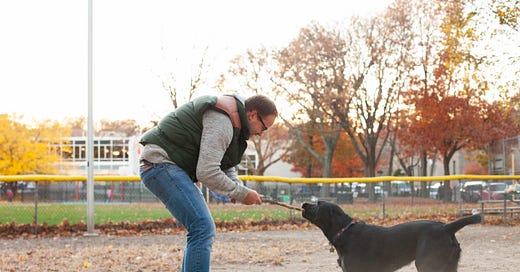


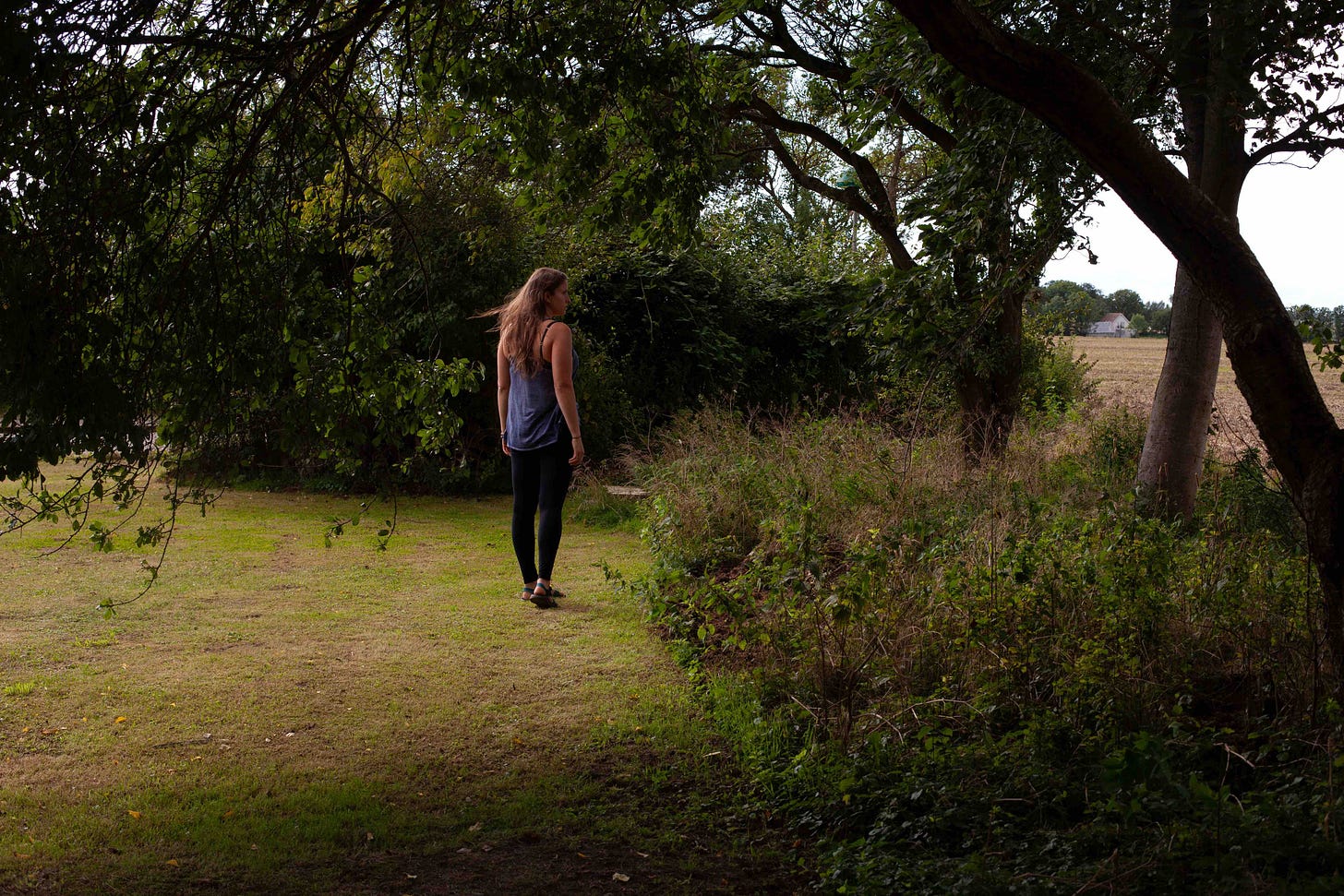
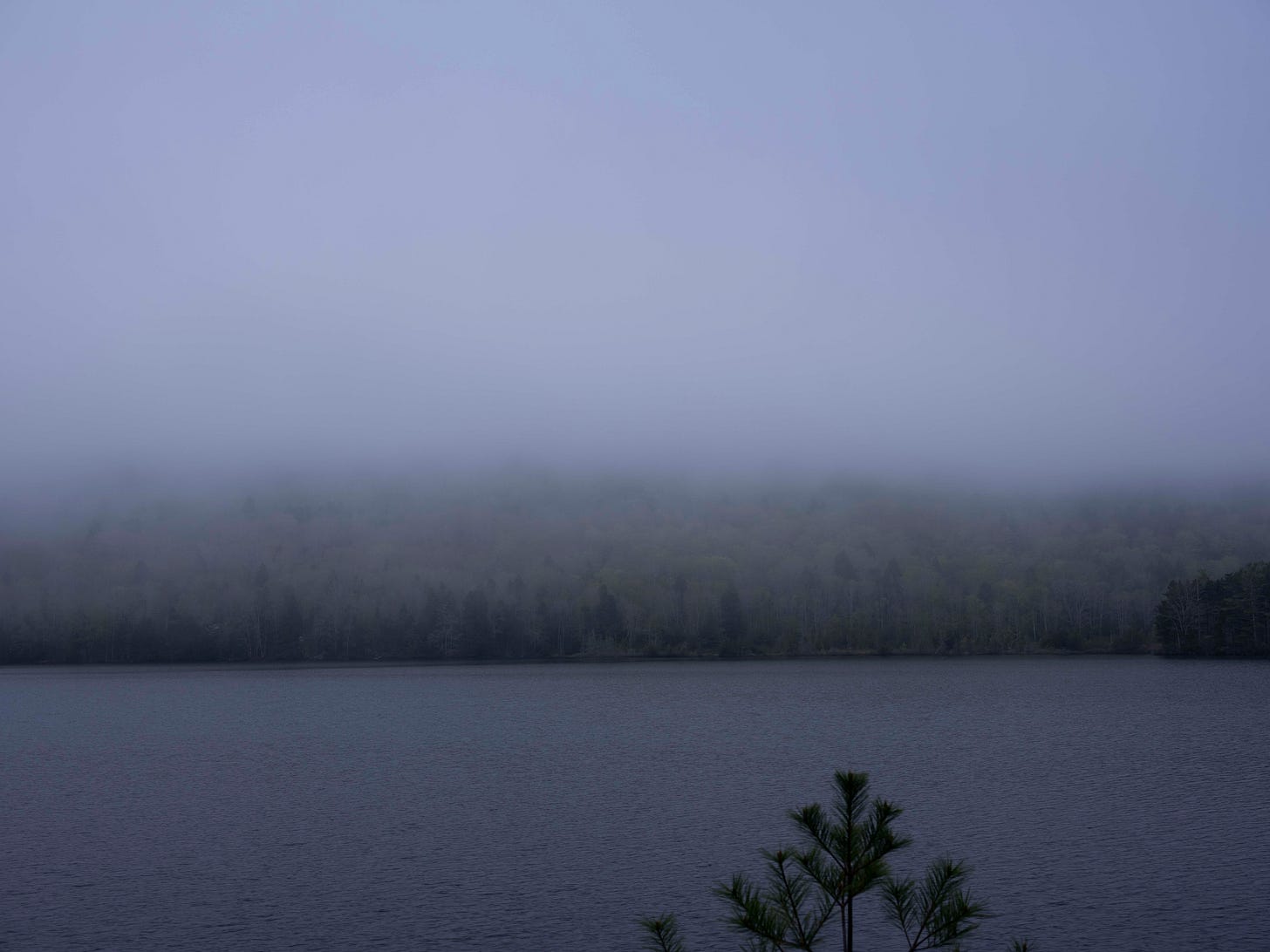
I found your piece beautiful, moving and powerful, Rachael.
As a fellow widow, I deeply connected with your journey. Moving forward after loss is an unpredictable and difficult path—one I never expected to navigate the way I did. When I met someone new and felt an unexpected attraction, I was stunned by the emotional challenges that followed.
Surprisingly early in my new relationship, we agreed to write a book about the journey—about the complexities that come with loving again after this specific kind of loss. We were both aware of how being with someone widowed is completely different from being with someone divorced or never married.
The guilt that caught me off guard, the way touch felt like breaking an unspoken commitment to my late husband… there were so many moments to move through, each requiring a kind of courage I hadn’t anticipated.
We did write that book. And my late husband Joluut is a central character throughout its pages. If you’d like a copy, I would love to send one your way. In Tandem: Pedaling Through Midlife on a Bicycle Built for Two is our story—and I hope it resonates with you.
https://InTandemBook
Beautifully stated. Sending love. Releasing memories here too…feels right.